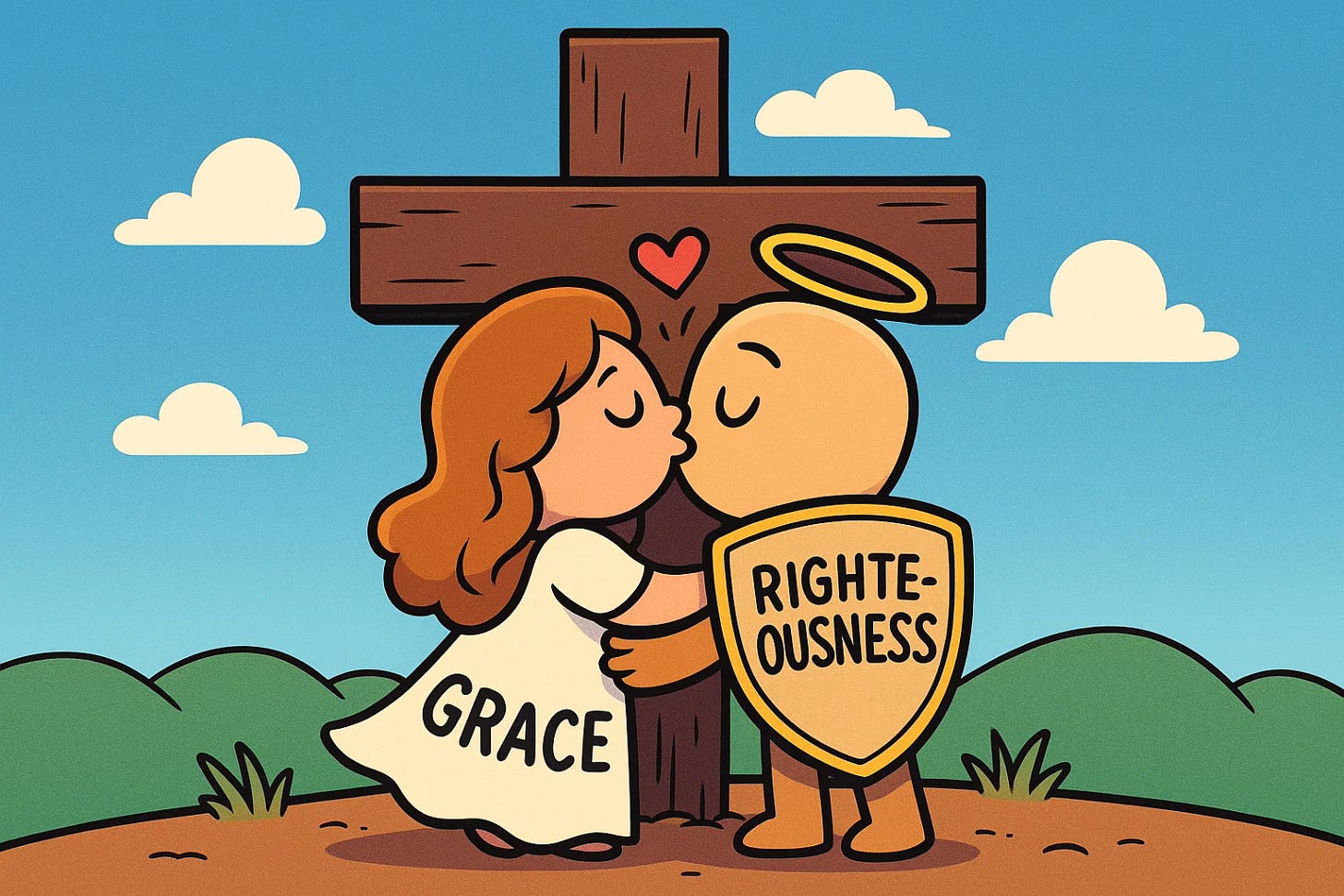We’ve all done it. We read the Psalms and start looking for ourselves—what we should do, how to clean up, what God wants from us. But that’s not where the Psalms point. That’s not the center. The focus isn’t on what man needs to fix. The focus is on who God is.
And when you see Him, really see Him, it changes everything.
The Psalms aren’t trying to whip you into shape. They’re not here to hand you spiritual homework. They’re here to show you the heart of the living God. His mercy. His faithfulness. His compassion. His patience. His goodness doesn’t give out when you do.
Yes, we’re called to turn from sin. But that turn doesn’t start with effort. It starts with God revealing Himself. That’s the pattern. We don’t repent to get mercy. We repent because we’ve already seen it. We turn because we’ve seen the face of the One who never turned from us.
But thou, O Lord, art a God full of compassion, and gracious, longsuffering, and plenteous in mercy and truth. Psalm 86:15
That’s not a verse about what to do—it’s a verse about who God is.
The LORD is merciful and gracious, slow to anger, and plenteous in mercy. Psalm 103:8
The LORD is gracious, and full of compassion; slow to anger, and of great mercy. The LORD is good to all: and his tender mercies are over all his works. Psalm 145:8–9
That’s not instruction. That’s reality. That’s the truth about the God we’re dealing with. And it’s meant to stop you in your tracks.
Mercy That Doesn’t Quit
Mercy is mentioned 135 times in the Psalms. Do you think that’s accidental? No. It’s the heartbeat of the book. You get to Psalm 136, and it explodes: “For His mercy endureth forever.“ Twenty-six verses, same line again and again. It’s not filler. It’s the foundation.
We forget, so God repeats—not because He’s trying to be poetic, but because He knows we’ll doubt it. He knows we’ll return to performance and try to earn something He already gave us.
Psalm 136 walks through creation, deliverance, provision—all the big moments. And behind each one is the same reason: because His mercy endures forever.
That’s the explanation for everything God does.
David’s Confession Wasn’t About Trying Harder
Psalm 51 is raw. David’s in the middle of the worst moment of his life. He’s caught. He’s guilty. But what does he do?
He doesn’t make promises. He doesn’t bargain. He doesn’t offer a deal. He falls on mercy.
Have mercy upon me, O God, according to thy lovingkindness: according unto the multitude of thy tender mercies blot out my transgressions.
He’s not performing or posturing. David is collapsing into the character of God. He uses three different Hebrew words just to describe that mercy:
Hanan — the mercy that stoops down low to help the undeserving.
Raham — the mercy like a mother has for her baby. Protective. Unshakable.
Hesed — the loyal, covenant love that doesn’t quit when you do.
David knows the size of his sin. But he knows something bigger: the mercy of God.
Creation Drips with It
The earth, O LORD, is full of thy mercy. Psalm 119:64
You see it everywhere—if your eyes are open: gravity, oxygen, color, food that tastes good, a baby’s laugh, a sunrise. Mercy holds together the very structure of creation. Even in a fallen world, it’s all still laced with grace.
We act like God’s mercy is hard to find. But the Bible says it’s baked into the ground.
Mercy and Truth Met—And Didn’t Back Down
Mercy and truth are met together; righteousness and peace have kissed each other. Psalm 85:10
That’s not sentiment. That’s blood and fire. Truth dictates that we must deal with sin. Mercy declares that it can save the sinner. Where do they meet? At the cross.
God didn’t overlook your sin; He took it on Himself. Jesus took justice so you could receive mercy. That’s where righteousness and peace kissed—on wood, in blood. God didn’t compromise. He fulfilled both sides.
That’s not religious theory. That’s what your whole life rests on.
This Isn’t Behavior Management
We keep turning Scripture into a to-do list. But the Psalms aren’t trying to manage your behavior. They’re trying to rewire your vision. Stop looking at yourself. Start looking at Him.
When you see Him rightly, you change. But not because you’re forcing it. You change because mercy has wrecked you.
You begin to trust, not perform. You stop trying to earn what’s already yours. You stop striving and start walking. Mercy doesn’t make you lazy; it makes you alive.
When mercy grabs you, sin starts to lose its grip, not because of fear but because of beauty. You’ve seen something better. You’ve seen Him.
Mercy That Lasts
Psalm 136 says it over and over: His mercy endureth forever. That means it doesn’t get old. It doesn’t get weaker. It doesn’t run dry when you blow it for the hundredth time.
His mercy doesn’t expire. It doesn’t show up once and vanish. It’s not a temporary fix. It’s not a special offer.
It’s eternal because He is.
When you say, “His mercy endures forever,“ you’re making war. You’re pushing back the lies, fighting off guilt. You’re saying, “I know who God is and He’s not letting me go.“
That’s how you live and fight. That’s how you breathe when everything else feels like it’s caving in.
This Is the Song of the Kingdom
Solomon’s temple opened with this cry: He is good. His mercy endures forever.
When Christ comes to reign, the exact words will resound. That’s the soundtrack of heaven. It’s the banner over history. Nothing will ever change this truth.
And it’s the truth we need right now.
We don’t need another sermon telling us to try harder. We need to see the God who stoops low, comes near, and never gives up on the ones everyone else gave up on.
We need to stop putting ourselves in the middle of the story. We’re not the main point. He is.
Mercy Is the Whole Deal
The Psalms give us language for pain, doubt, anger, worship, and joy, but underneath it all, they give us God. That’s what we need—not steps, not strategies, just Him.
The God who is full of mercy, who isn’t going anywhere, who knows your worst and stays, anyway.
That’s the message, the power, and the anchor.
Let’s stop reading the Psalms looking for a mirror and read them like a window, so we can see the One who reigns, the One who saves, and the One whose mercy endures forever.
Because it does.
And that changes everything.










